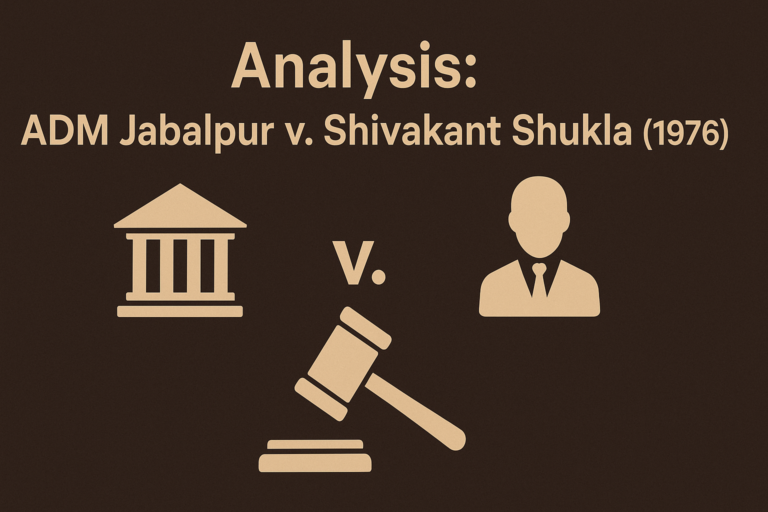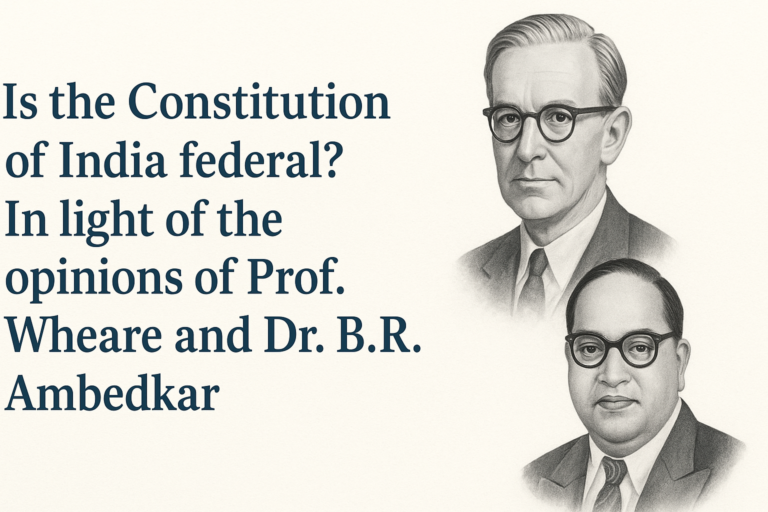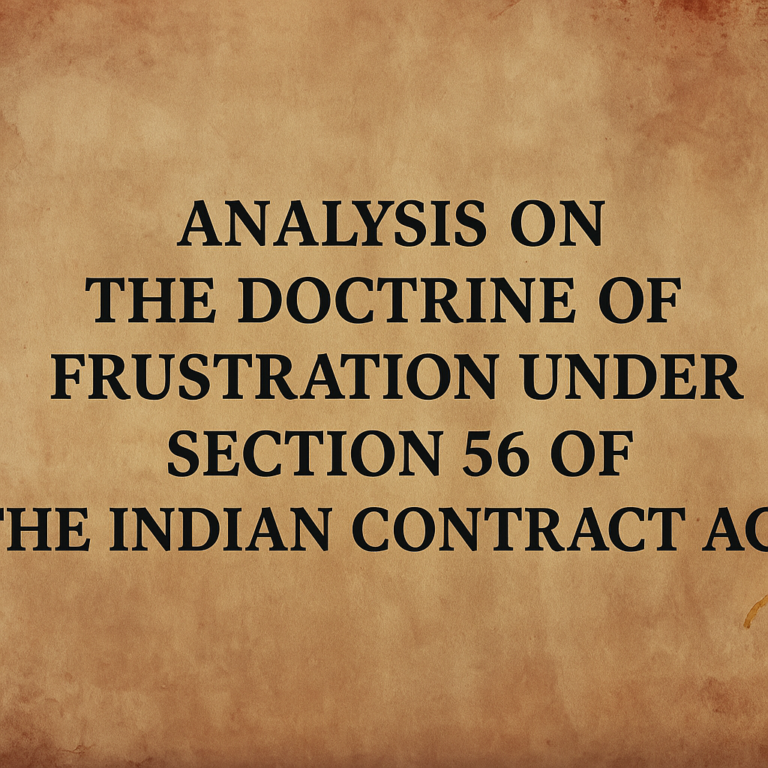
This article has been written by Shahil Rangra an engineer cum lawyer.

INTRODUCTION:
The UCC, in general, is meant to treat civil matters of all citizens residing in a country with equality, irrespective of their religion and cultural background. It is to ensure the common rules by replacing the personal laws. The UCC aims to strengthen secularism and promote harmony by giving equal treatment to all persons. The legislation deals with marriage, divorce, adoption and inheritance. It restricts citizens to be governed as per their personal laws. UCC covers both personal as well as laws of property. Its implementation has been a long standing matter of debate. Those in favor present a strong need to promote secularism and equality, whereas others who oppose argue that its implementation interferes in personal religious and cultural sensitive areas, thereby hindering the diversity that India has.
STATUS IN INDIA:
Uniform Civil code is mentioned under Article 44 of Indian constitution, thereby giving it status “Directive principles of State policy|”. It says, states shall endeavor to secure a Uniform civil Code for the citizens throughout the territory of India. The British in 1840, established uniform codes with respect to crime, evidence and contract but personal laws left untouched. When the constitution assembly was set up some members supported the UCC, whereas Muslims and minorities were in favor of their personal law and opposed the UCC. The disagreement led to its inclusion in the DPSP, which means they are not legally enforceable.
Howdy, you all! Welcome to your page of knowledge. You will find different legal blogs, the latest news, current affairs, and many more on this channel. This is the initiative to develop the knowledge of the law in the world, especially for you.
Legal Development in India:
Shah Bano vs Ahmad khan 1985, was the first case that raised the issue of uniform civil code implementation. In this case Muslim husband was brought under the ambit of Crpc to provide maintenance to her husband. The case of Sarla Mudgal vs UOI 1995 is a prominent one because in this Supreme Court iterated the importance of uniform civil code and promoting fairness and uniformity of marital laws across the country. In this case, to conduct a second marriage by converting to Islam was an issue. The bigamy was the purpose accused, thereby exploiting the personal laws. The issue of Christian marriage annulment came in the case John Valamattom vs Union of India 2003. It underscored the need for clarity and uniformity for marriage matters concerning Christians. To bring Muslim women at par with other communities, the supreme court iterated the need of UCC to harmonize personal laws in the famous case of Shayara Bano vs Union of India 2017. In this Talaq-e-bidat practice was declared void.
Various personal laws in India-
- The Hindu Marriage Act, 1955.
- The Hindu Succession Act, 1956.
- Hindu Minority and Guardianship Act 1956.
- The Hindu Adoption and Maintenance Act 1956.
- The Hindu Disposition of Property Act, 1956
- The Muslim Personal law (Shariat) Application Act 1937.
- The Dissolution of Muslim Marriage Act 1939.
- The Muslim Women (Protection of Rights on Divorce) Act 1986.
- The Muslim Women (Protection of Rights on Marriage) Act 2019.
- The Indian Christian Marriage act 1872.
- The Anand Marriage Act 1909.
- The Parsi Marriage and Divorce act 1936.
COUNTRIES WITH UNIFORM CIVIL CODE:
France- In France the Napoleonic Code also known as Uniform civil code is the oldest, which was selected in the year 1804. It was a uniform set of laws that provided uniformity, irrespective of religious differences. It covers various subjects that include marriage, divorce, inheritance and personal affairs.
USA- In the USA, there are multiple layers of legislation because states are independent in their sphere. This makes each state follow its own legislation and conventions. The USA doesn’t have its full-fledged uniform civil code but some states have their own unique features of uniform civil code. California, have a family code that applies to all its citizens irrespective of their religion.
Turkey- Turkey under the leadership of Mustafa Kemal, in 1926 went through major legal reform. A new civil code it enacted was influenced from Swiss. This led to the reformation of Sharia Islamic law in civil matters. It introduced a secular and latest legal system that includes Uniform civil code. It outlawed the polygamy, and granted women equal rights in marriage, thereby recognizing civil marriage as only valid marriage.
Tunisia- Since 1956, the implementation of a progressive Uniform Personal Status Code was a breakthrough in the Arab world. It adopted a contemporary approach as per the dynamic needs. It promoted gender equality by granting the right to Muslim women to marry non-Muslim men. It also raises the minimum age of marriage to 18. Women were given the right to initiate the divorce. Also given the rights of child custody and inheritance.
Brazil-Brazil adopted the Uniform Civil Code in 2002, thereby some of the provisions of the civil code of 1916. The new code provided a comprehensive set of laws to govern the various matters of personal and property rights that includes marriage, divorce and inheritance. Irrespective of personal laws, these laws gave much more harmonizing principles to govern its citizens under a single umbrella.
Egypt- In the year 2000, significant change was made by Egypt by ensuring gender equality by passing a law that allowed Christian women to initiate divorce proceedings in civil court and also to seek custody of children and not relying on their religious authorities. Before this, their sole religious authorities used to govern their personal matters. Such a move ensured more harmony, letting women have the freedom to equal treatment.
India– In India, Goa is the only state with UCC in the form of common family law. It was the Portuguese civil code since 19th century that remained today without replacing it. It allows equal division of property irrespective of gender. It requires compulsory registration of birth, marriage and divorce. No polygamy allowed who registered marriage in Goa. Couple commonly holds the property acquired in course of marriage. Each spouse entitled to half share in property in case of divorce. In case of death, property divided equally among survivors. Children can’t be disinherited from the property by parents, at least half of the share is secured to them.
ARGUMENTS:
IN FAVOR-
- UCC will help India to integrate under a single national civil code irrespective of diverse practices.
- Sikhs, Buddhist and Jain are from long ago dealt under the same Hindu Civil Code. Still the diversity is intact and the traditions are followed uniquely.
- It will promote gender equality because most of the personal laws in India discriminate against women in matters of marriage, inheritance and custody.
- UCC would replace the complexity of various personal laws, thereby giving simplicity and clarity in a single simple code. This step will help common man to understand it better.
- As society advances it brings new social values. UCC will help to bring new changes in the legal framework as per contemporary values and principles.
- UCC would be very helpful in reducing the social tension among different communities by harmonizing the social values into a common set of social values.
AGAINST-
- UCC has been seen as a threat to India’s diverse culture and tradition. By bringing their ancient practices into one common code will not let their old tradition to be continued.
- It is also argued that UCC will infringe the right to freedom that is mentioned in the article 25-28 of Indian constitution. Following the single common code would not let individuals follow practices based on their religious beliefs.
- There are many communities who see UCC as not practical in India’s scenario. This would make it very difficult to reach a consensus.
- UCC has always been a politically sensitive debate. Many times it has been used for political gains i.e. vote bank politics. This makes it difficult to implement in a more constructive way.
CHALLENGES IN INDIA ON IMPLEMENTATION:
- Constructing a common set of rules to govern all communities is a tedious task considering a wide range of sentiments.
- The misinformation about uniform civil code is that it is a way to Hinduism. It is seen by minorities as an oppressive fold by the majority. The truth of its content is not yet spelt in the right context.
- Sometimes there is a lack of political will because of the complexity and sensitivity of the matter. Many times the Supreme Court of India urged the respective government to implement UCC.
- Many communities have several personal laws that are being politicized as per the religious interest.
WAY FORWARD
The Special Marriage Act 1954 is a feature of UCC where marriages are performed between different religious groups. Section 125 of Criminal procedure code 1907 provides maintenance rights to all citizens in the country. This shows the alternate mechanism available and brick-by-brick approach toward UCC. Involvement of various stakeholders in the process is crucial like religious leaders, legal experts and social representatives. This would help in a more constructive approach considering various perspectives. Public awareness and acceptance is also crucial. The information with respect to UCC should reach them in the right context. Prioritizing justice, equality, secularism and unity, a country can move toward a more harmonious legal framework.








